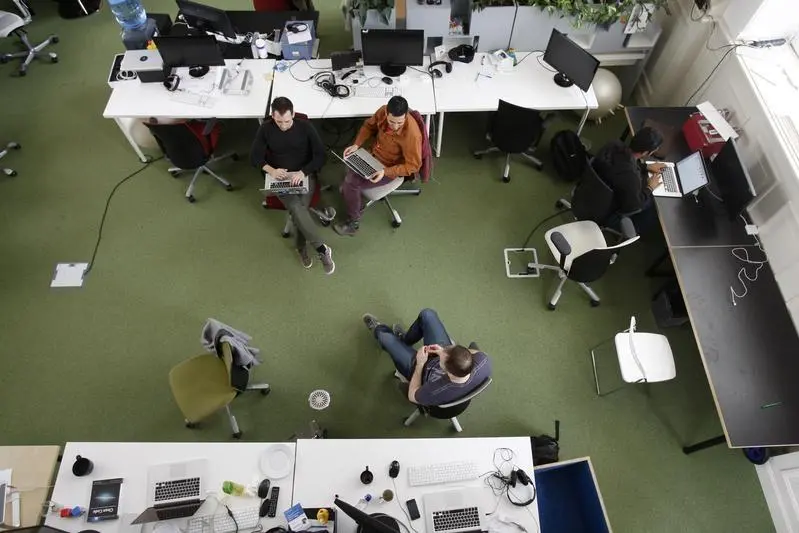PHOTO
I've got 99 problems, and palsy is just one, says American actress and comedian of Arab descent in her emphatic and hilarious TED Talk. Haven't watched it yet? Please do, it is a wise investment of approximately 12 minutes of your life.
The premise of this column are the two decrees issued by His Highness Sheikh Mohammed bin Rashid Al Maktoum, Vice-President and Prime Minister of the UAE and Ruler of Dubai, supporting differently abled people. The first decree in particular concerns providing equal opportunities for employment.
Ministerial Decree No 43 of 2018, published in the federal gazette, enables differently abled individuals to access equal opportunities in the labour market. The decree stressed that people with special needs "should not be terminated or forced to retire, especially if they sustained the disability after they were hired. They should retire when they are of the age or when they are deemed as unfit for work by a medical committee". This is truly a remarkable step taken by the government of Dubai to enable a more productive and progressive economy that benefits greatly from participation of able minds as opposed to just able bodies.
English theoretical physicist, cosmologist and author Stephen Hawking had a rare and slow-progressing form of motor neuron disease that gradually paralysed him over the decades. However, his condition did not deter him from becoming a renowned scientist. Assuming that a differently abled individual, differently abled female in particular, will drain an organisation's resources instead of add value to it is not only a prejudiced mindset, it is also quite backward. Deciding a candidate's aptitude based on physical ability and gender is a clear sign of regression.
It's quiz time. How many successful women can you name in the Middle East who are differently abled? Struggling? Not surprised.
An inclusive environment sans gender bias is not only beneficial for corporates but for the country as a whole. If an organisation is looking for talent, then talent is what should matter not the package or gender. Findings from the Conference Board of Canada reveals that "if businesses were to make a concerted effort to become more inclusive, both by making physical environments accessible and adjusting their attitudes towards the differently abled, the economic impact for the country would be significant".
Salon.com has said that differently abled people "may be the best workers no one's hiring". I'll go one step further to say that differently abled female workers in the region represent a severely under-tapped talent pool.
A survey on inclusion, commissioned by Emirates NBD, revealed that more than 75 human resource managers from government and private sectors said they did not hire differently abled people because they believed business would be harmed and that people with disabilities would not perform well because of their limits. A recent study by the Institute for Corporate Productivity (i4cp) says: "Hiring people with disabilities doesn't just improve the talent pool at the office - it also improves the office culture."
i4cp also found that high-performing businesses are twice as likely as low-performing ones to emphasise diversity and inclusion as a matter of policy, and more than twice as likely to specifically include people with intellectual and developmental disabilities in those goals. In other words, diversity and inclusion has a direct positive impact on a company's bottom line.
We boast about this being the 21st century and all developments that come with it, but the appointment of a female CEO still gets a 'first-ever' tag to highlight the progressive mindset of a company or industry. Now let us take a look at this headline, 'First-ever female CEO with a disability'. Is the 'first-ever' tag in this case truly a sign of progress or are we glorifying an acute inability to look past gender and physical ability? Shouldn't an individual's success in any field be defined by his or her track record?
The government of Dubai upholds equal rights for women as well as differently abled people through remarkable laws and facilities that encourage inclusion across government and private sectors. In fact, Sheikh Mohammed is hopeful that the combination of positive and proactive reforms make the society more inclusive, with 2020 as the target for the city of Dubai to become fully accessible to the differently-abled. However, closer introspection on ground reality indicates that as a society, there is still a long way for us to go in eliminating constraints which place disabled women at a distinct disadvantage relative to disabled men and non-disabled women.
The title of a book by Mary Jo Deegan is Women and Disability: The Double Handicap. I would like to conclude with a question, does it have to be?
The writer is founder and CEO of Stars Dome Realty and Mall.Global. Views expressed are her own and do not reflect the newspaper's policy.
Copyright © 2018 Khaleej Times. All Rights Reserved. Provided by SyndiGate Media Inc. (Syndigate.info).





















